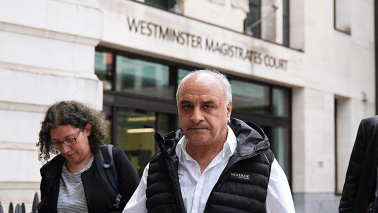In the absence of any operas to attend, I’ve been reading the most recent defence of ‘director’s opera’, a book with the characteristic title Unsettling Opera, by the American academic David J. Levin.
In the absence of any operas to attend, I’ve been reading the most recent defence of ‘director’s opera’, a book with the characteristic title Unsettling Opera, by the American academic David J. Levin. Anyone braving one of these books — there are plenty of them now — needs to have a high tolerance for jargon, indeed for deformed prose of many kinds. They tend to rehearse the same basic argument, in Levin’s case with close attention to a small number of operas and (usually) DVDs of some productions.
The idea is that ‘literalist’ productions, which set an opera in the period indicated in the libretto, and have the characters behaving as described there, or as you would expect given the context and the action, most often fail to arouse any fresh or interesting responses, in fact, are scarcely more than a ritual, the main variables being the singers and the conductor, and the main purpose of many opera-goers being to attend the performance to see how it compares with ones that they have seen in the past or know from recordings.
If opera, with its limited repertoire of familiar works, is to survive as a serious art-form, it needs to be kept alive by new interpretations, which make us see works in a different light from what we are used to. Of course in contemporary writing on the subject this view is couched in daunting terms and elaborated at great length, and with the suspect support of ‘theory’, but I haven’t yet been persuaded that it amounts to much more than what I have just outlined.
The risks of ‘routinization’ (a word that actually crops up in Levin’s book) are obvious, but that doesn’t necessarily mean that you should think of something outré each time you produce an established piece. One wonders how long ‘director’s opera’, as we have become familiar with it, can continue, if it involves incessant novelty of presentation. How many planets can Aida rewardingly be set on? How many homoerotic interpretations of Così fan tutte are available?
Levin admits that there can be invigoratingly ‘literalist’ productions, just as there can be pointless ‘figuralist’ ones. Isn’t the time fast approaching when innovative productions themselves produce the fatal yawn of recognition? When the curtain rose on Act II of Tannhäuser at the Royal Opera last month and one had the familiar scene of upturned chairs, the detritus of war, and everyone in shabby greatcoats, wasn’t the reaction of regular opera-goers, ‘Oh, God, not this again!’?
Which brings me to my next point: director’s opera is aimed, evidently, at regulars. If you are an opera-goer with private means, or a certain kind of opera critic, your main occupation will be notching up productions of the same work in as many cities or, nowadays, country estates as possible. Before ENO’s lamentable production of Don Giovanni recently I heard a critic telling his guest that he had recently seen five other productions of the work in different European cities. Naturally, if he wasn’t to be bored, he craved something different when the curtain went up (before the Overture started, of course). It’s for such people that director’s opera is designed.
We are being shaken out of our preconceptions. But what if we don’t have any specific preconceptions? I’m not suggesting that people should attend an opera without knowing what the plot is, though that wouldn’t be shocking. But the majority of people at almost all opera performances, with the exceptions, perhaps, of certain summer festivals, won’t be all that familiar with the work. And it seems to me that the first duty of the director, still, is to give a clear sense of the narrative, which will involve establishing the characters.
Some directors evidently feel that now we have surtitles, almost everywhere — a major advance of the past 30 years — they can be left to guide the audience, while the production sets up what are sometimes described as ‘fruitful contradictions’ or ‘illuminating ambiguities’. But the first reaction of most people witnessing a production in which what the characters are saying (singing) has scant relation to what they are doing is bewilderment or frustration.
Just as people who broadly speaking are in favour of director’s opera may sometimes agree that ‘literalist’ productions can be valuable, so I admit that I have seen radical productions which have been invigorating and enlightening. Not many, though. And I find the majority of examples of Regietheater to be impertinent, routinely shocking, and often insulting in their assumption that the audience needs someone to do its thinking about an opera for it, instead of allowing it to have an experience in the opera house and reflect at leisure on its significance. And if people aren’t going to think about the opera when they get home, it is unlikely that they will be profitably provoked by the intrusions of the director’s mind while they are in the theatre.





Comments